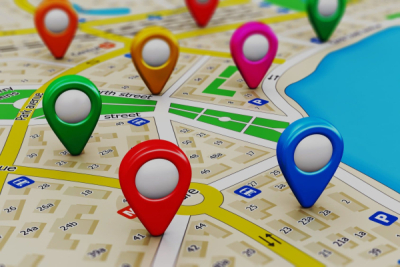-
Many African countries still lack standardized digital address systems.
-
This gap limits access to essential services, especially in rural areas.
-
Governments are launching reforms to support digital inclusion and growth.
Across Africa, the absence of reliable digital address systems remains a major barrier to accessing essential services and advancing economic development. As digital economies grow rapidly, several countries are stepping up efforts to map their territories and build more connected and inclusive governance systems.
In many regions, assigning precise and standardized digital addresses to homes, businesses, and infrastructure is still a structural challenge. Without these systems, citizens face hurdles in everyday services such as package delivery, healthcare, emergency response, and administrative processes.
Large parts of rural Africa, as well as informal urban areas, remain without formal addresses. This weakens logistical networks, disrupts territorial planning, and limits delivery of basic services. For millions, not having an address means being left out of economic systems and public support.
Governments launch national reforms to modernize address systems
Several African countries have begun tackling the issue. Nigeria, for instance, launched a national program to overhaul its address system using GPS technology, mobile apps, and centralized digital databases. The project aims to improve location identification, public service delivery, and support the digital economy’s expansion.
Other countries such as Kenya, South Africa, Rwanda, and Senegal are moving in a similar direction, often through public-private partnerships focused on digitizing physical territory. In Cameroon and Guinea, governments are working with the startup FindMe to pilot digital addressing solutions, particularly to upgrade postal services and improve territorial connectivity.
This growing mobilization follows a broader international push. In 2009, the Universal Postal Union (UPU) issued a resolution urging all member states to implement national addressing systems. This prompted many African governments to see digital addresses as essential infrastructure for public policy, urban development, and digital transition.
A tool to unlock e-commerce, fintech, and modern services
Digital address systems could be a turning point for African economies. They provide a precise geographic framework that supports the rise of services in e-commerce, financial technology, transport, and healthcare.
In online retail, for example, address reliability is key to customer satisfaction. Africa’s e-commerce market is growing fast, with projected revenues surpassing $45 billion by 2028, according to Lithuanian fintech firm Nikulipe. But poor address systems make delivery more complex, expensive, and less dependable, limiting this growth.
A driver of better governance and broader inclusion
Beyond economic benefits, digital addresses also improve public governance. Local governments can plan infrastructure more effectively, manage services like waste collection or emergency response, and respond faster during health or environmental crises.
Address systems also improve access to financial and social services. Having a formal address can make it easier to open a bank account, register a business, or receive public assistance, key steps toward broader social and economic inclusion.
By upgrading their address systems, African countries are laying the foundation for lasting digital transformation. More than just a mapping tool, digital addressing is becoming a strategic asset for organizing territory, streamlining services, and building an inclusive digital economy.
In short, digital address infrastructure is not just a technical fix, it is a vital step toward better governance, deeper integration, and a more forward-looking Africa.
Samira Njoya



















